Attached files
| file | filename |
|---|---|
| 8-K - FORM 8-K - Unilife Corp | d800409d8k.htm |
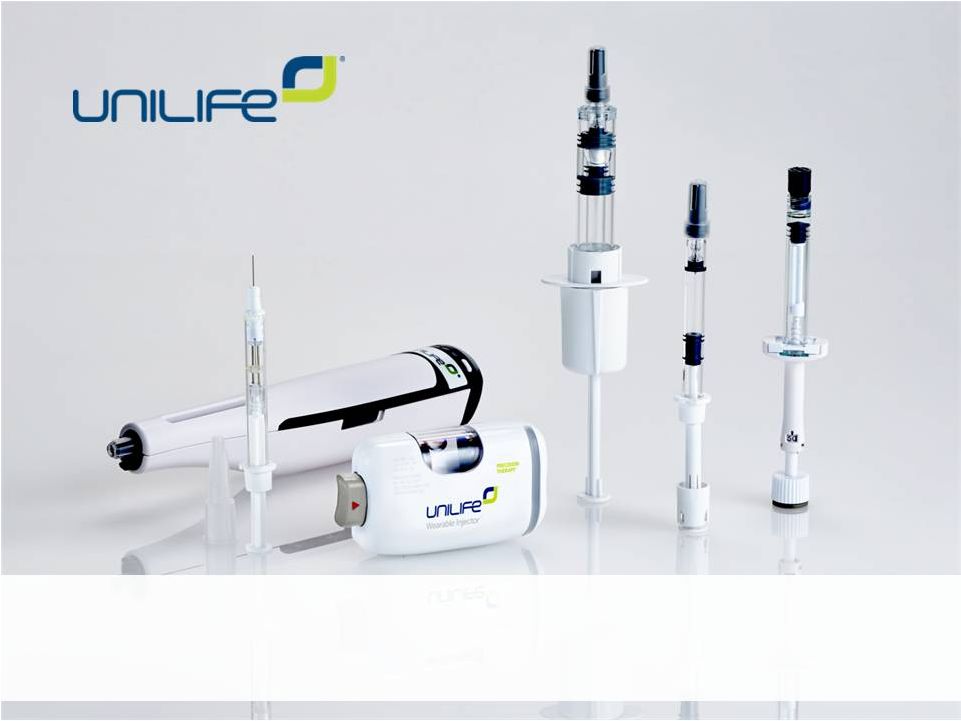 Unilife Leadership for Wearable Injectors
October 6, 2014
Exhibit 99.1 |
 This
presentation contains forward looking statements under the safe harbor provisions of
the US securities laws. These forward-looking statements are based on
management’s beliefs and assumptions and on information currently
available to our management. The FDA has not evaluated some products within
this presentation due to the normal timing of regulatory submissions for
drug-device combination products prior to anticipated commercial use. Our
management believes that these forward-looking statements are reasonable as and when
made. However you should not place undue reliance on any such forward looking
statements as these are subject to risks and uncertainties.
Please refer to our press releases and our SEC
filings for more information regarding the use of forward looking statements.
Cautionary Note Regarding Forward-Looking Statements
|
 Confidential-Unilife Corporation
Long-Term Partnerships to Create Customer Value
A Broad, Market-Driven Portfolio for all Injectable Therapies
Innovation within a Standard Footprint to Minimize Risk
Delivering High-Quality Products in Accelerated Timelines
Dedicated, Responsive Teams with Deep Scientific Expertise
A Strategic Partner for Injectable Therapies
DELIVERING BRILLIANCE |
 Highlights
•
Unilife signs second long-term supply agreement for wearable injectors
•
To be sole provider of wearable injectors to Sanofi for all of its applicable
large volume drugs, excluding insulins, for a minimum 15 years
•
Revenue to begin this fiscal year via an upfront payment customization
program payments and initial commercial sales
•
Unilife estimates Sanofi has between 5 to 10 applicable molecules that will
be delivered in wearable injectors
•
Unilife advancing its market leadership position for wearable injectors
•
Projected $8B in wearable injector device sales (188% CAGR) by 2025
•
An estimated average of five million commercial units per molecule
•
Unilife’s leadership position being driven by:
•
Best-in-class platform of wearable injectors that can be customized to
specific customer needs for each molecule/ indication
•
Advanced technical capabilities and a large, growing team of industry
experts with deep scientific expertise |
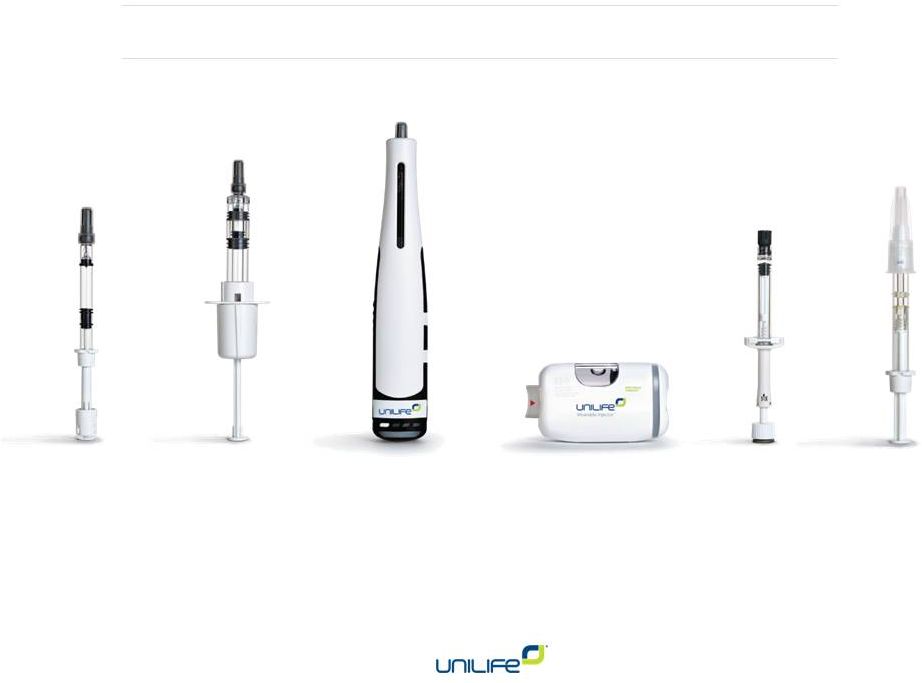 A
Broad, Flexible Portfolio for Injectable Biologics Prefilled
Syringes
Reconstitution
Systems
Auto-
Injectors
Wearable
Injectors
Ocular
Systems
Novel
Systems
For all prefilled
drugs, vaccines
and biologics
For all liquid-liquid or
liquid dry drug
combinations
For all handheld
self-injection
therapies
For all wearable
self-injection
therapies
For accurate,
precise delivery
to the eye
For when
conventional
devices fall short |
 Unifill
®
Unifill Finesse
™
Unifill Select
™
Unifill Allure
™
Unifill Nexus
™
AutoMix Presto
™
EZMix Genesis
™
EZMix Engage
™
EZMix Prodigy
™
RITA
™
LISA
™
Flex-Therapy
™
Ocu-mix
™
Depot-ject
™
Micro-ject
™
Precision-Therapy
™
Ocu-ject™
Multiple Platforms. Endless Product Configurations. |
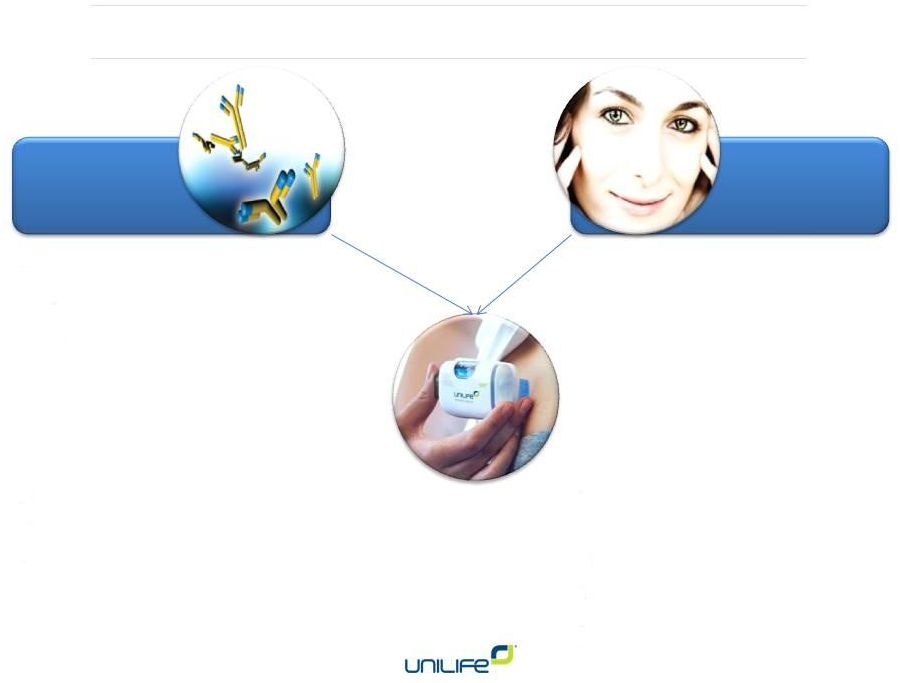 Market
Trends for Self-Injection of Large Dose Volumes Self-
Injection
Biologics
Device-Led Benefits for Patients
Device-Led Benefits for Drug Company
* E&Y Global Life Sciences Report 2012
healthcare facilities in 10 years*
•
Patient, prescriber, payor preference
•
Differentiated from competitors
•
Increased market share
•
Maximizing revenue
•
Safety, simplicity, convenience
•
Less frequent injection regimens
•
Improved therapy compliance
•
Reduced healthcare costs
•
Enhanced quality of life
•
1,000+ biologics in development
•
Complex molecules with well-defined patient
populations
•
Many too viscous for handheld devices
•
Half of healthcare outside of |
 Wearable Injectors
Typical Industry Needs for Wearable Injectors*
Avg. selling price
$20 to $35
Avg. commercial units / drug / year
5MM
Avg. drugs / indications / customer
5 to 12
Avg. drug-device supply period
10 –
15 years
Disposable delivery systems for the self-
injection of large dose volume drugs
•
Dose volumes from 2mL to 10mL
•
Primarily subcutaneous admin. route
•
Typical injection frequencies from every
week to every month
•
Pre-configured for injection periods from
seconds to hours
•
Bolus, basal or variable injection rate
* Roots
Analysis.
(2nd
Edition),
2014
-
2025
Large
Volume
Wearable Injectors. September 2014.
Confidential-Unilife Corporation |
 Generating Patient Outcomes.
Reducing Healthcare Costs.
•
Wearable injectors are an
enabling technology that can
help redefine treatment in many
therapy areas by empowering
patients to safely, simply and
conveniently self-inject drugs.
•
Many chronic diseases (e.g.
cancer*) require patients to
receive treatment with
injectable therapies in
healthcare facilities. Associated
quality of life and healthcare
costs can be substantial.
•
Therapies that can be self-
injected may also be enhanced
via less frequent, more
convenient dosing regimens.
•
Patient non-compliance is a key
healthcare challenge, affecting
patient health and creating
healthcare system inefficiencies .
•
Wearable injectors can help
improve therapy adherence by
making dosing regimens less
frequent, less invasive and more
convenient.
•
Bluetooth connectivity with
wearable injectors may
further enhance patient
compliance via smart-phone
reminders, automatic physician
confirmation of a successful
injection etc.
Confidential-Unilife Corporation
* Subcutaneous Administration of Monoclonal Antibodies in Oncology
http://www.ncbi.nlm.nih.gov/pmc/articles/PMC4078128/?report=printable
|
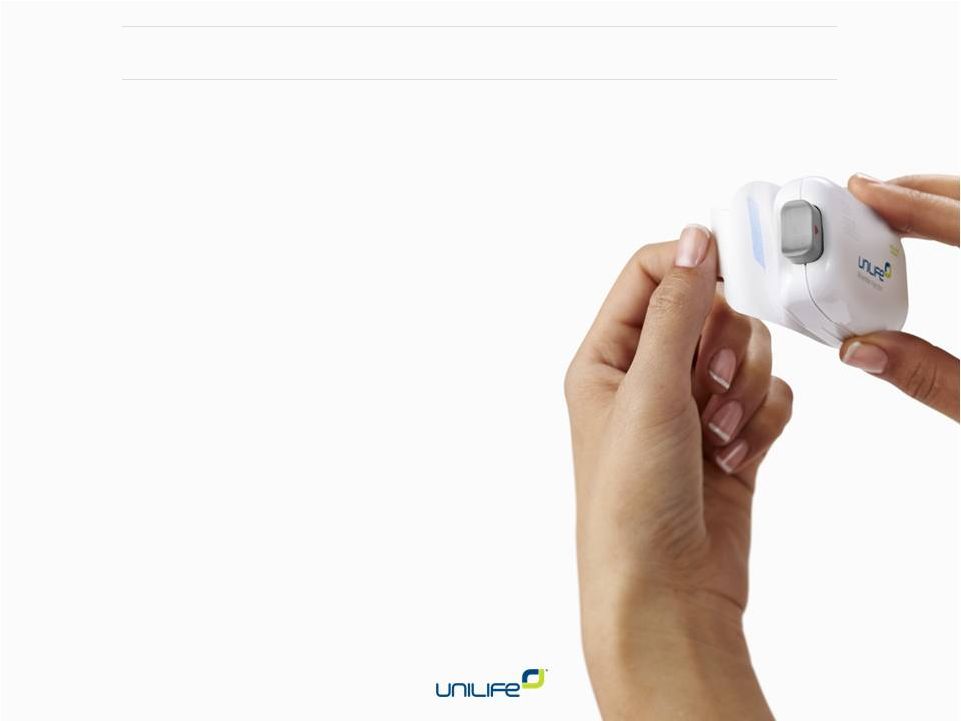 •
Healthcare markets and regulatory agencies
increasingly desire patient-centric therapies that
generate value and health outcomes for patients
and healthcare systems.
•
Delivery systems are increasingly important in the
approval and lifecycle management of
injectable biologics.
•
Therapy preference among patients, prescribers
and payers can be influenced by factors such as
fewer steps, improved safety or less frequent
dosing regimens.
•
Pharmaceutical companies have an opportunity
to leverage wearable injectors to optimize
product branding and further differentiate their
biologics and other drugs from the competition.
Optimizing User Preference. Enhancing Brand Differentiation.
Confidential-Unilif Corporation |
 Wearable Injectors: 188% CAGR to $8B Market by 2025
Roots
Analysis.
(2nd
Edition),
2014
-
2025
Large
Volume
Wearable Injectors. September 2014.
0
100
200
300
400
2015
2016
2017
2018
2019
2020
2021
2022
2023
2024
2025
Device Sales by Units (MM)
$
$2,000
$4,000
$6,000
$8,000
$10,000
2015
2016
2017
2018
2019
2020
2021
2022
2023
2024
2025
Device Sales by Revenue ($
MM)
0
10
20
30
40
50
60
70
80
90
100
2015
2016
2017
2018
2019
2020
2021
2022
2023
Drugs in Wearable Injectors by Therapy Class
Other
Neuological disorders
Skin diseases
Diabetes
Muscuolskeletal disorders
Digestive disorders
Respiratory disorders
Cardiovascular
Infectious diseases
Genetic disorders
Blood disorders
Autoimmune
Cancer
- |
 mAbs
Recombinant proteins
Interferons
Peptides
Antisenses
Gene therapies
Small molecule
Serving Multiple Therapy Areas and Drug Categories
Wearable Injectors have broad pharmaceutical application
Blood Disorders
Auto-Immune
Oncology
Cardiovascular
Skin
Anti-thrombotics
Genetic disorders
Infectious diseases
Muscoloskeletal
Neurologic
Respiratory
Others |
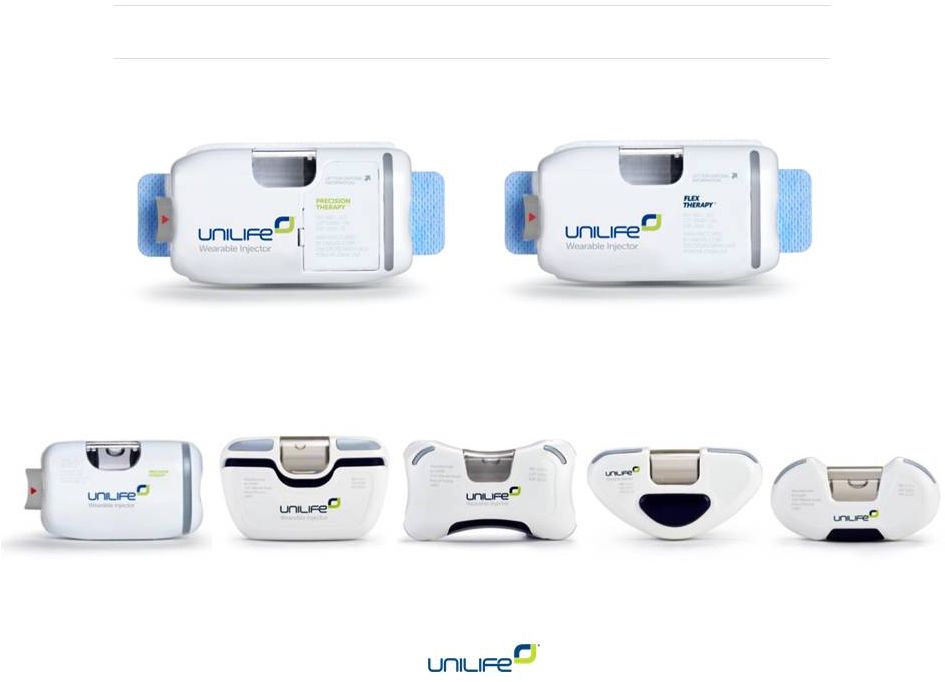 Precision-Therapy
™
For long-duration therapies that require
delivery of a single, large-volume dose.
Flex-Therapy
™
For long-duration therapies that require
delivery
of
a
large-volume dose
at
a
predefined rate profile.
These products have not been
evaluated by the FDA.
Unilife’s Wearable Injector Platform
Pre-filled. Pre-assembled. Ready for injection.
Factors including size, shape, look and feel can be customized to customer
needs |
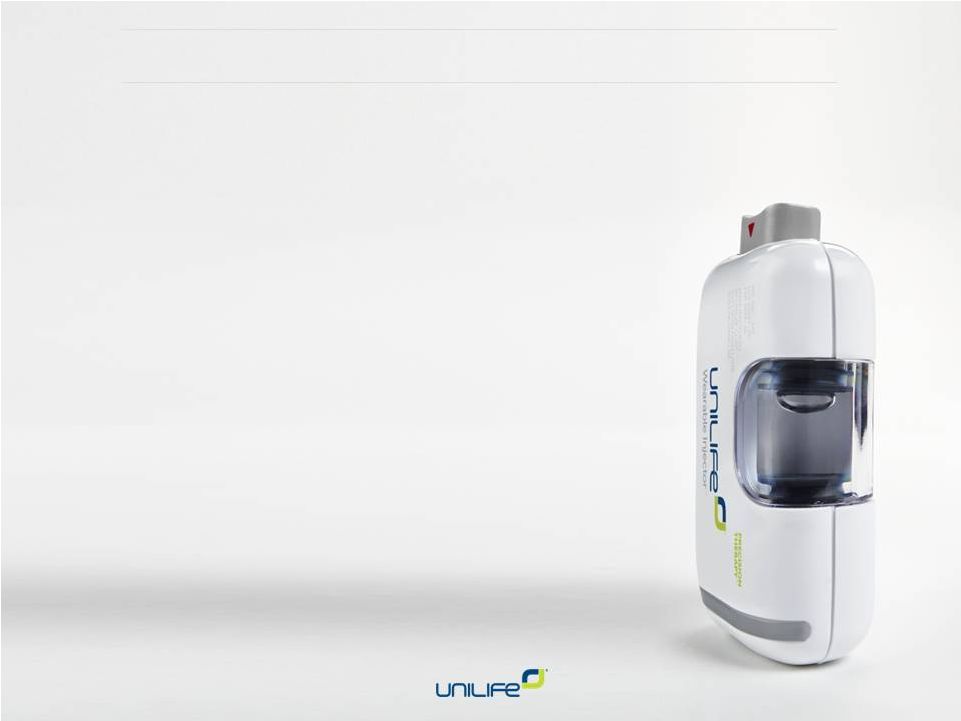 What
sets Unilife’s technology apart: Simple to Use
o
Pre-filled and pre-assembled
o
Three intuitive steps of use (Peel, Stick and Click™)
o
Audible, tactile and visual indicators
o
Multiple safety features
Simple to Customize
o
Highly customizable design and function
o
Option for Bluetooth connectivity
Simple to Industrialize
o
Integrates smoothly into existing commercial processes
o
Standard materials in primary container
o
No terminal sterilization required
Confidential-Unilife Corporation |
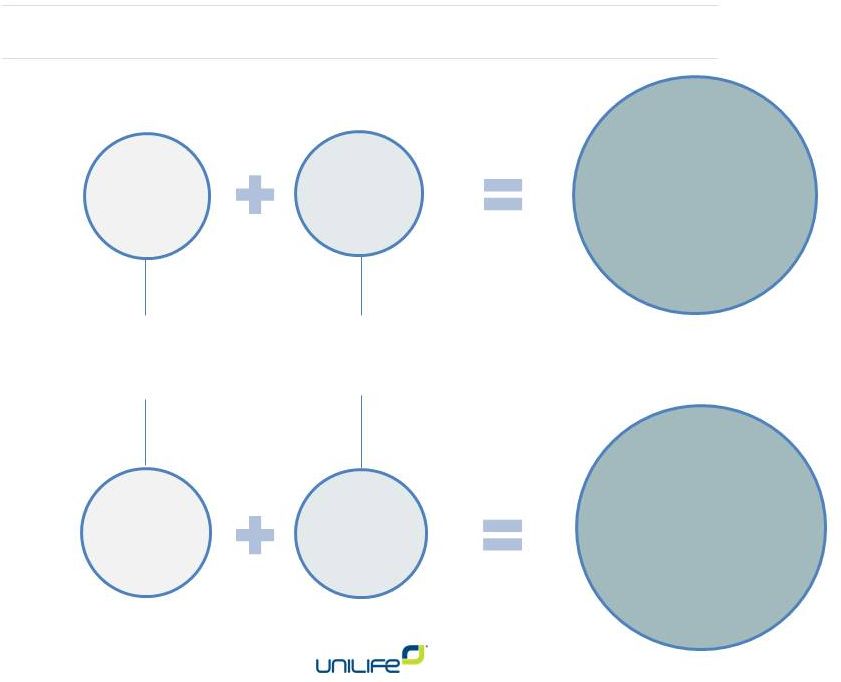 U.S
E.U
Drug-Device Regulatory Pathways
Pharmaceutical
Partner
Development
Unilife Development
and
Submission
Pharmaceutical
Partner Submission
•
Regulated under
CDER
Combination
Product (A)NDA
Submission
•
[References
Delivery
System
Filing]
Delivery
System
Master
File/510(k)
CDRH
Drug
Product
Drug
Product
Delivery
System
Combination
Product Marketing
Authorization
Application
(EMEA)
•
Regulated
under
MPD –
2001/83/EC
•
[References
Delivery System]
Technical
File
CE
Mark |
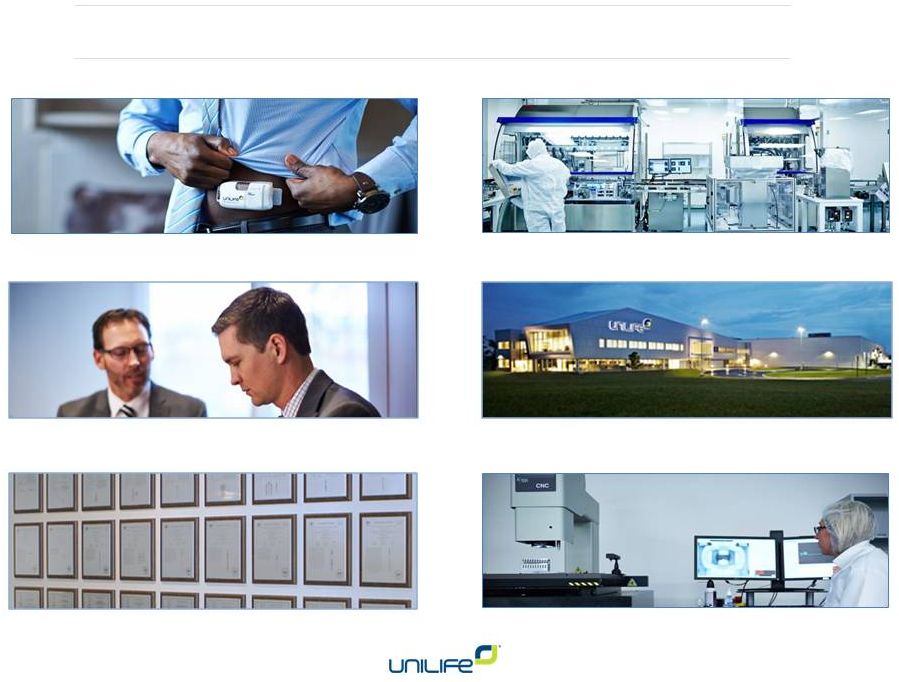 Unilife’s Leading Technical Capabilities
Dedicated teams of Technical Experts
Rapid Product Commercialization
Streamlined Production Scalability
State-of-the-art U.S. Facilities
IP Portfolio with Freedom to Operate
Assurance and Flexibility of Supply |
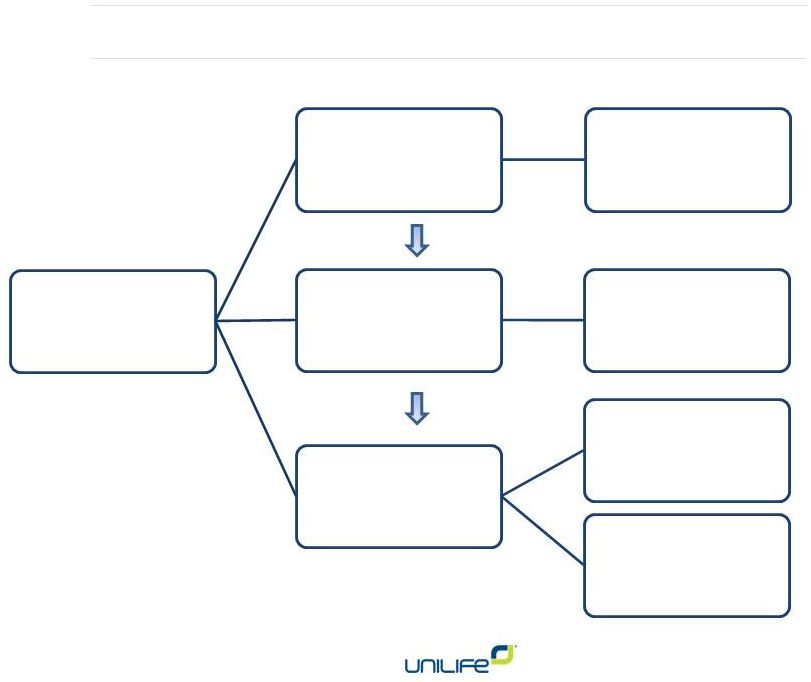 Typically
portfolios with
multiple large
dose volume
drugs
Revenue from
initial phases
of
customization
programs
Long-term
agreements
with multiple
expected
drugs to
require
wearable
injectors
Unilife Customers and Pipeline for Wearable Injectors
Unilife Customer
Relationships
Commercial
Pipeline
A multitude of
other target
programs at
various stages
Customer
Programs
Multiple programs
underway or to
commence shortly
Long-Term
Supply Contracts
MedImmune /
AstraZeneca
Sanofi |
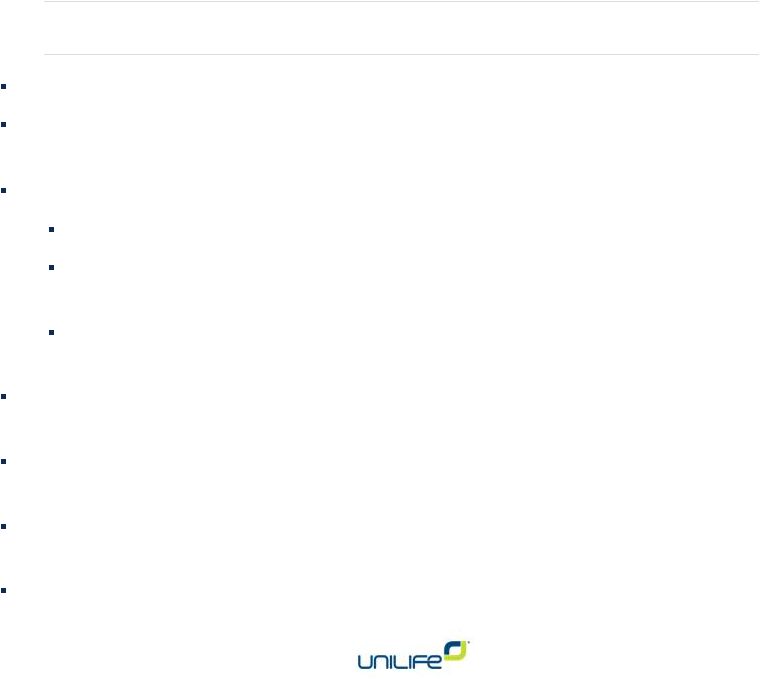 Today’s 15-Year Agreement with Sanofi
15-Year Master Services and Commercial Supply Agreement
Unilife to be sole provider of wearable injectors for use with all of Sanofi’s
applicable large dose volume drugs, excluding insulin
Sanofi’s portfolio includes several mAbs and other biologics
Such drugs often target and eventually approved for multiple indications
Based on public information & industry forecasts, Unilife estimates that Sanofi
has
between
5
to
10
molecules
that
will
be
delivered
in
wearable
injectors
Unilife and industry forecasts* estimate on average each wearable injector
drug from a pharmaceutical customer will require a nominal 5MM units a year
Sanofi has non-exclusive access to Unilife wearable injector technology during
the period of the agreement
Unilife
maintains
the
right
to
sign
supply
agreements
with
other
customers
for
wearable injectors
Parties
to
collaborate
to
develop
other
new
technologies
to address
additional
unmet or emerging needs for the delivery of large dose volume biologics
Any change in management replacing Alan Shortall as Chairman or CEO or a
successor approved by him gives Sanofi the right to terminate the agreement
* Roots
Analysis.
(2nd
Edition),
2014
-
2025
Large
Volume
Wearable Injectors. September 2014. |
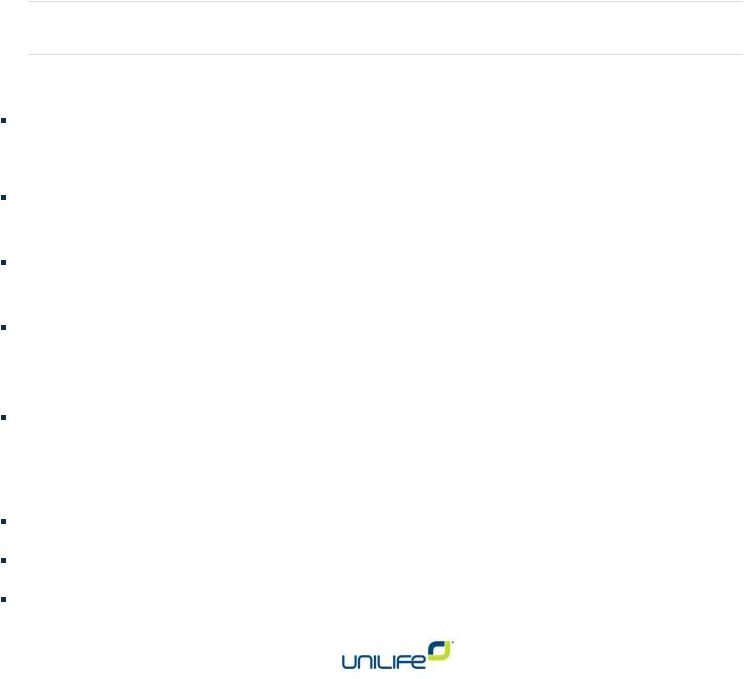 Revenue Streams During Agreement Period
Unilife receives an upfront payment upon the signing of this agreement
Unilife to receive milestone-based payments from Sanofi to customize its
wearable injectors to requirements of each applicable drug / indication
Each customization program expected to generate payments during an 18
month
to
24
month
period.
First
programs
expected
to
start
this
fiscal
year
Based upon the number of estimated Sanofi programs, Unilife anticipates
approximately $50MM from customization programs relating to Sanofi
molecules and indications.
Unilife anticipates substantial incremental revenue via customization programs
under joint collaborations between Unilife and participating Sanofi affiliates.
Volume-based pricing for pre-clinical, clinical and commercial products
Initial commercial sales for clinical and pre-clinical use expected this fiscal
year Average expected commercial lifecycles for applicable drugs 12 to 15
years Upfront payment
Customization payments
Device Sales |
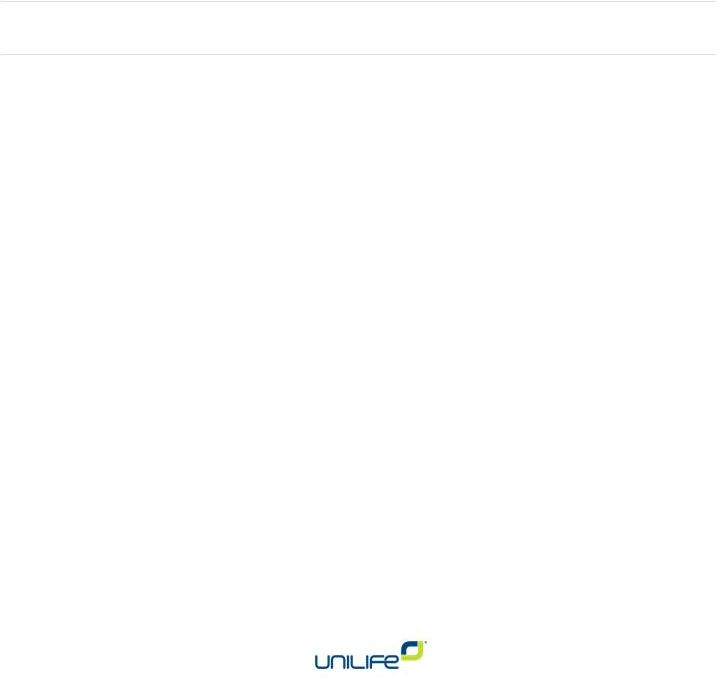 A
Demonstration of Unilife’s Business Model Long-term partnerships for
drug-device combination products •
Differentiated devices become part of the regulatory drug label
•
Multiple target drugs, indications and therapy areas
•
Each relationship can expand with incremental agreements for other products
•
Sole supplier of a product / platform for use with a customer’s applicable
drugs An annuity-like business model with recurring revenue
•
Multiple target drugs, indications and therapy areas
•
Recurring annual revenue with intrinsic growth year over year
•
Model enables minimal selling costs & encourages attractive operating
margins •
New customers increase revenue and rate of revenue growth
•
Strong, growing IP portfolio creates a barrier for new competition
|
    Confidential-Unilife Corporation
Questions |
